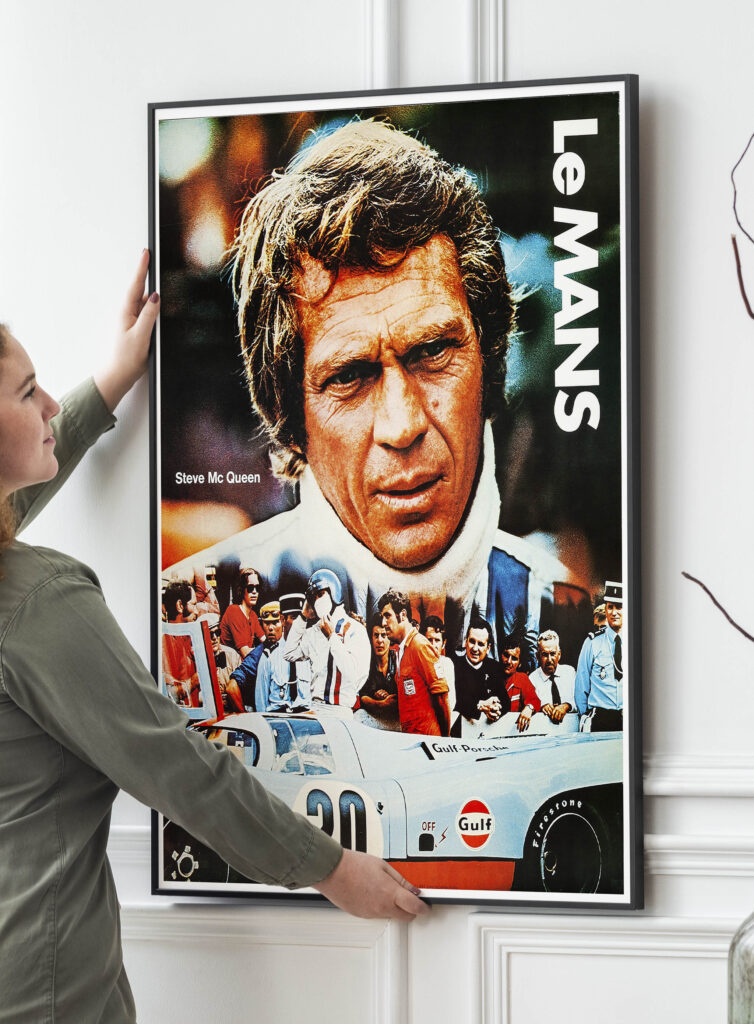Blog
Steve McQueen: The Enduring Legacy of an Iconic Actor
Steve McQueen stands today as the “King of Cool,” he left an indelible mark on Hollywood through his captivating performances, defining an era of cinema with his rugged charm and undeniable charisma. Born on the 24th of March, 1930, in Beech Grove, Indiana, McQueen’s journey to stardom was marked by hardships, resilience, and an unrelenting pursuit of his dreams.
McQueen’s early life was tumultuous; raised by his mother and an abusive stepfather, he spent time in reform schools before joining the United States Marine Corps. During his military service, his passion for acting began to emerge, leading him to pursue an acting career upon returning to civilian life.
His breakthrough came in the late 1950s and early 1960s, with roles in television series like “Wanted: Dead or Alive.” McQueen’s ability to portray stoic, enigmatic characters with an air of rugged masculinity earned him recognition and paved the way for his transition to the big screen.
In 1963, McQueen starred in “The Great Escape,” solidifying his status as a leading man. His portrayal of the rebellious Captain Virgil Hilts remains one of his most iconic roles, showcasing his on-screen magnetism and solidifying his image as a cinematic hero.

Throughout the 1960s and 1970s, McQueen dominated the silver screen with memorable films. His roles in classics such as “The Magnificent Seven,” “Bullitt,” and “The Thomas Crown Affair” further cemented his legacy as a versatile actor capable of commanding the screen with his presence.
McQueen’s cinematic success was paralleled by a life that mirrored his on-screen persona. His love for speed and adventure extended beyond the roles he played, earning him a reputation as a daredevil and racing enthusiast. He competed in motor racing and owned a collection of high-performance cars, expressing his passion for adrenaline-fueled pursuits.
Off-screen, McQueen’s personal life was as tumultuous as it was intriguing. His relationships, including marriages to Neile Adams and Ali MacGraw, often made headlines, but it was his tumultuous childhood that continued to haunt him throughout his life. Despite his stardom, McQueen grappled with inner demons and personal challenges.

Yet, his commitment to authenticity and a desire for self-improvement propelled him forward. McQueen’s dedication to his craft and relentless pursuit of perfection resulted in captivating performances that resonated with audiences worldwide.
In 1980, at the age of 50, McQueen succumbed to cancer, leaving behind a legacy that continues to endure. His impact on cinema transcended generations, influencing actors and filmmakers long after his passing. His trademark coolness, magnetic presence, and ability to inhabit complex characters remain an inspiration to aspiring actors.
McQueen’s films continue to be celebrated and revered, serving as timeless classics that showcase his talent and the era in which he thrived. His portrayal of flawed yet charismatic characters captured the essence of an evolving society, resonating with audiences grappling with social change and upheaval.
Beyond his on-screen achievements, McQueen’s legacy encompasses his commitment to authenticity, his ability to rise above adversity, and his pursuit of living life on his terms. His persona, both on and off the screen, continues to captivate and inspire, reminding us of the enduring impact of a true Hollywood legend.

In conclusion, Steve McQueen’s life and times were a testament to resilience, passion, and an unwavering commitment to leaving an indelible mark on cinema. His enduring legacy as an iconic actor and his captivating performances ensure that his influence on the entertainment industry will continue to be felt for generations.

